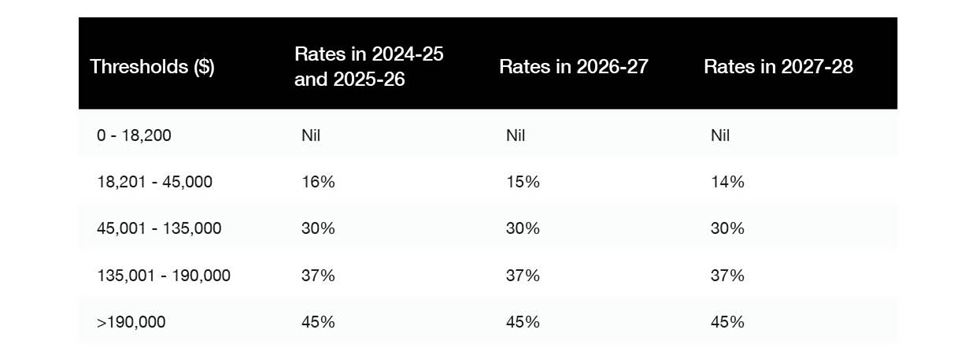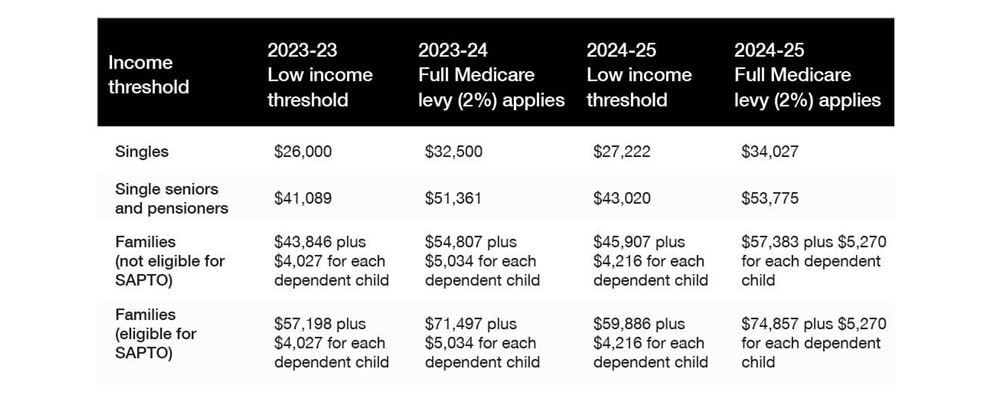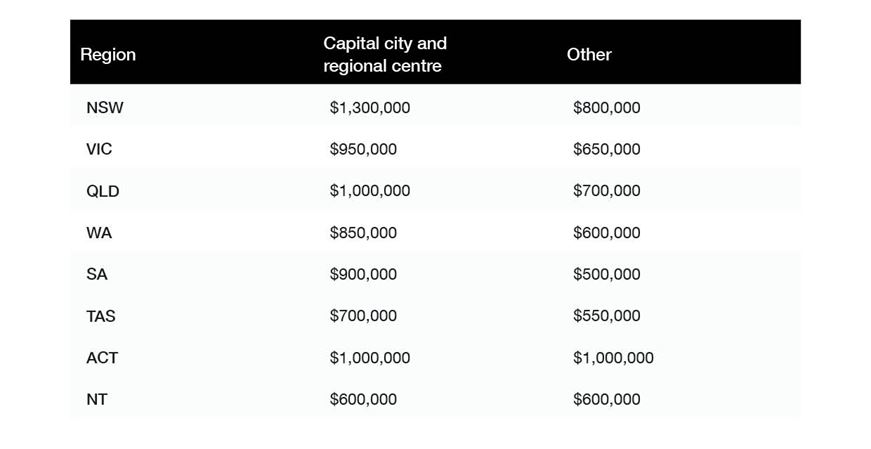Cost of living relief for households and individuals in Federal Budget 2025
Treasurer Jim Chalmers handed down the 2025/26 Federal Budget on 25 March 2025 with a key focus on managing the Australian economy through easing cost of living pressures and addressing bracket creep.
Proposed resident income tax rates
The big surprise in this year’s Budget was a tax cut for individuals on incomes between $18,201 and $45,000, with the rate reducing to 15% effective 1 July 2026, with a further reduction to 14% effective 1 July 2027.This is down from 16% for the current income year.
These tax cuts are in addition to the so-called stage three tax cuts that have been in place since 1 July 2024. They aim to provide cost of living and energy bill relief and alleviate some of the effects of bracket creep.
New resident individual income tax rates:1

After combining with the previously enacted rate cuts, these measures will provide the following tax savings for individuals at the below taxable incomes by reference to the 2023/24 income tax year.

Foreign residents are not entitled to the tax-free threshold or the first income tax threshold, so this proposal will not flow through to non-resident individuals.
Medicare levy – low-income thresholds for 2024-25
The Federal Budget proposes a 4.7% increase to the minimum income at which the Medicare levy is payable. The change raises the minimum income level at which the levy is payable and is estimated to provide full or partial relief from the Medicare Levy for more than one million taxpayers,2 improving access to affordable health services.
The change is backdated and applies to income earned from 1 July 2024.

The Medicare levy phases in at 10 cents for each dollar above the applicable low-income threshold until the full Medicare levy at 2% applies.
Expansion of shared equity scheme
The Government announced an expansion of the Help to Buy shared equity housing scheme, adding an extra $800 million to its investment, and lifting income caps to cover almost all first home buyers. The funding will increase the maximum property price eligibility as well as the income caps for individuals to qualify to access the scheme.
The Government now proposes to allow individuals applying for the Help to Buy program to earn up to $100,000, and up to $160,000 for couples and single parents. Previously the thresholds were $90,000 and $120,000 respectively.
The new property price caps by region are:

Home buyers need to have a deposit of 2% and qualify for a standard home loan to finance the rest of the purchase.
The budget includes $49.3 million in new funding to support the state governments in developing prefabricated and modular home construction, as well as funding for planning, infrastructure and social housing in order to accelerate the supply of affordable housing.
Higher education loan repayment changes
Support is being offered to students and graduates to reduce the level of student debt. The Government has proposed to reduce all outstanding loans under the Higher Education Loan Program (HELP) and other student debts by 20%.
This is proposed to occur before indexation is applied on 1 June 2025 and is estimated to remove around $16 billion in debt.
The student loan repayment system will also be reformed from 1 July 2025 by moving to a marginal repayment system with a higher minimum repayment threshold. The minimum repayment threshold is proposed to increase from $54,435 in 2024–25 to $67,000 in 2025–26.3
Both these reforms will of course be subject to the passage of legislation.
Deferral of foreign resident capital gains tax
The Government has announced that it will defer the start date of the proposed Strengthening the foreign resident capital gains tax regime from 1 July 2025 to the later of 1 October 2025 or the first 1 January, 1 April, 1 July or 1 October (depending on when the legislation receives Royal Assent).
This measure was first announced in the prior year’s Federal Budget (2024-25), which had a proposed change to the capital gains tax (CGT) implications for foreign residents.
It was previously announced that the measures would clarify and expand the range of assets on which foreign residents are subject to CGT, change the principal asset test from a point in time to a 365 day testing period and require foreign residents disposing of shares or other interests worth more than $20 million to notify the tax office before the transaction is executed.4
Restricting foreign ownership of housing
The Government announced measures to ensure foreign investment in housing is restricted to enable Australians to buy homes that would have otherwise been bought by foreign persons, while encouraging foreign persons to boost Australia’s housing supply.
The proposed measure is intended to boost Australia’s housing supply by banning foreign persons (which captures temporary residents and foreign-owned companies) from purchasing established dwellings for two years from 1 April 2025, unless an exception applies.
Exceptions to the ban are proposed to include investments that significantly increase housing supply or support the availability of housing on a commercial scale and purchases by foreign owned companies to provide housing for workers in limited circumstances.5
Other spending measures
In addition, the government has announced a range of measures to further target cost of living pressures and to try and put money back in the hip pockets of Australians.
Some of the key measures include:
- An additional $150 energy bill relief rebate for individuals and small business to help manage rising power bill costs;
- Medicare bulk billing incentives are being expanded to cover all patients eligible for Medicare. It is estimated that this should result in nine out of ten GP visits being bulk billed by 2030;
- The PBS patient co-contribution is being reduced to $25 per script, down from the current $31.60 with effect from 1 January 2026;
- Specific funding is being provided for a women's health package to support contraception, endometriosis and menopause care;
- Additional funding for childcare and schools, as well as expanding access to childcare support by the removal of the activity test model to access childcare subsidies to help improve labour market participation.
Overall, Budget 2025 has stuck to its core theme of providing modest support to help ordinary Australians facing no letup in the costs of living pressures whilst sticking to the government's principles of responsible fiscal management.
Stay ahead of changes impacting your finances and talk to our Tax Advisory team.